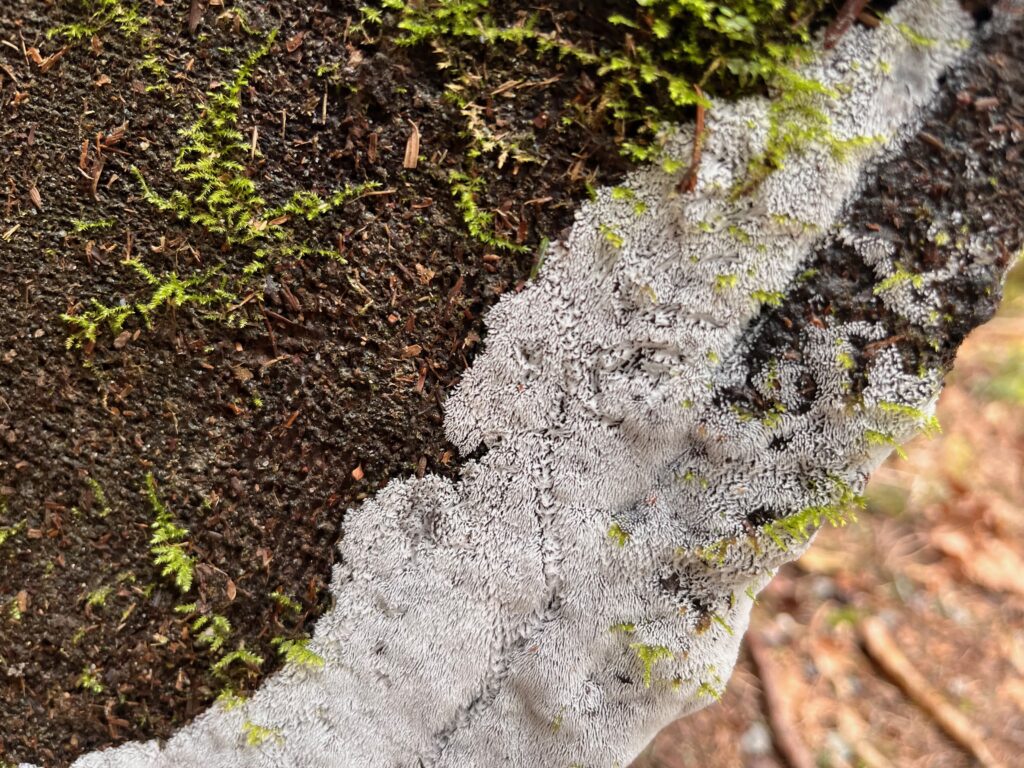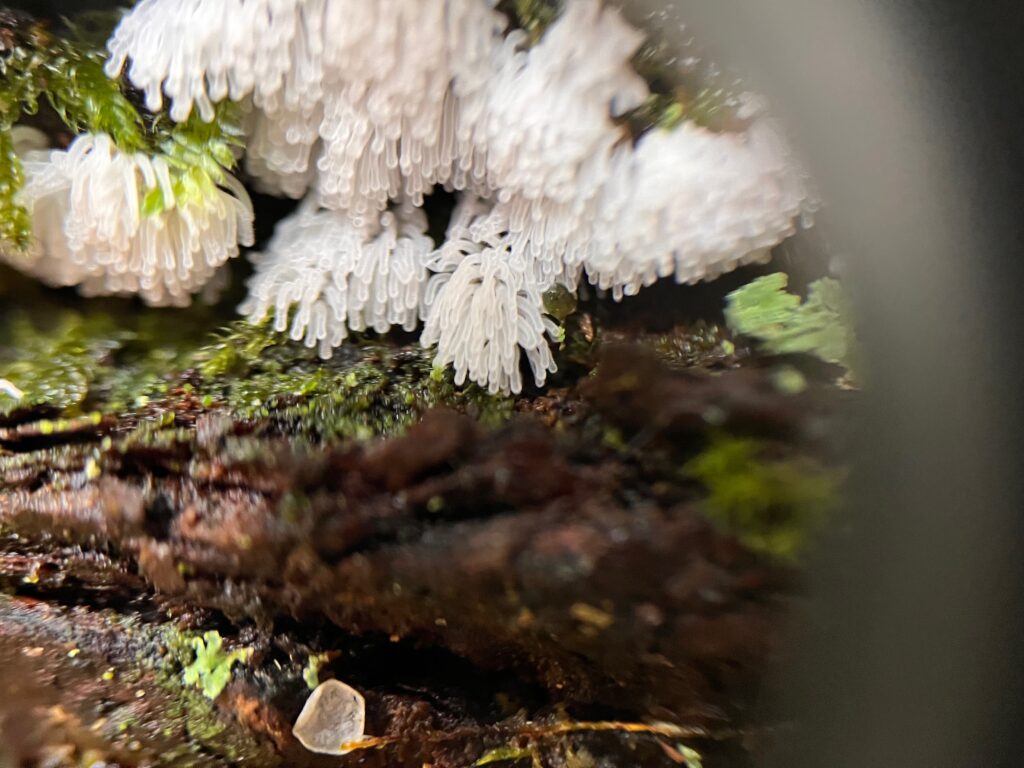quote
It was a good thing for me to learn a craft with a true maker. It may have been the best thing I have done. Nothing we do is better than the work of handmind. When mind uses itself without the hands it runs the circle and may go too fast; even speech using the voice only may go too fast. The hand that shapes the mind into clay or written word slows thought to the gait of things and lets it be subject to accident and time. Purity is on the edge of evil, they say.
Ursula K. Le Guin – Always Coming Home
thinking about
I was in Vancouver last week, so I’m working today to catch up, but it was worth it to see some friends and family and spend some time in a rain forest.
On Wednesday, I’m giving a talk to a sustainability community of practice. My head is obviously still in the rain forest though because sustainability isn’t totally capturing what I want to talk about.
It’s easy to talk about sustainability as part of our operations. We’re a common good, so others don’t need to buy their own things (every campus is full of forgotten 3D printers in closets). We’ve built a tool library and are currently building a donation-based fabric stash of materials people can use for free. We recycle PLA from 3D printers.
Sustainability is also built into instruction and programming. During my welcome talk, I ask learners to be conscious consumers of materials, while recognizing that people need to use materials to learn. We partner with others to run events where people can learn how to repair their clothes, bikes, and small electronics. We’re even building a plant propagation station where people can exchange plant cuttings.
But what I really want to think about is how we can use making and technology as a site for repair and maintenance, not just of the built or natural environment, but as a way of rehabilitating our relationships with non-human species and the land.
The thing is, I’m not sure myself what this means yet. This is the topic of my upcoming sabbatical in January, but I want to get going on it now.
One thing I’m sure about is that makerspaces, and ours in particular, are not primarily innovation spaces. Our value is as learning spaces, spaces for belonging, and community spaces. That opens the door to broadening what we think of as appropriate uses and purposes for the space.
Many Indigenous cultures ground learning, making, and technology in relations with the rest of nature. Long term, I would like us to broaden our focus to find more ways of using the connections people gain in the space between themselves, their communities, and the material world as a way of rehabilitating their relationships with the natural world.
photos


A wonderful slime mold found on one of the trails near the Seymour river in Vancouver. Magnified through the loop.
links
In the 1950s and 1960s, a series of thinkers, beginning with Jacques Ellul and Marshall McLuhan, began to describe the anatomy of our technological society. Then, starting in the 1970s, a generation emerged who articulated a detailed critique of that society. The critique produced by these figures I refer to in the singular because it shares core features, if not a common vocabulary. What Ivan Illich, Ursula Franklin, Albert Borgmann, and a few others have said about technology is powerful, incisive, and remarkably coherent. I am going to call the argument they share the Standard Critique of Technology, or SCT. The one problem with the SCT is that it has had no success in reversing, or even slowing, the momentum of our society’s move toward what one of their number, Neil Postman, called technopoly.
From Tech Critique to Ways of Living
The most common failure cases I see in these kinds of situations is people starting from deep within their own heads, either because they’ve been fully immersed in a particular project, or because they’re reacting to their own fears or concerns. (Even if those are legitimate!) I can’t tell you how many times I’ve seen an important document, like a cover letter for a job, or a pitch for fundraising, that essentially starts with a lengthy, off-putting, deeply insular recitation of a list of things that are basically a litany of the author’s insecurities. Don’t do this!
Make Better Documents.
That universities have adapted should make us confident that they will adapt to synthetic media models as well. But adaptation is never without some cost to the organism.. As a reliance on digital content has grown, universities have had to invest more and more to deal with unwanted effects, whether that means new ways of supporting staff and students, investment in digital platforms and infrastructure, IT support, security and privacy services, or subscriptions on increasingly poor terms.
Risks to Knowledge Economies